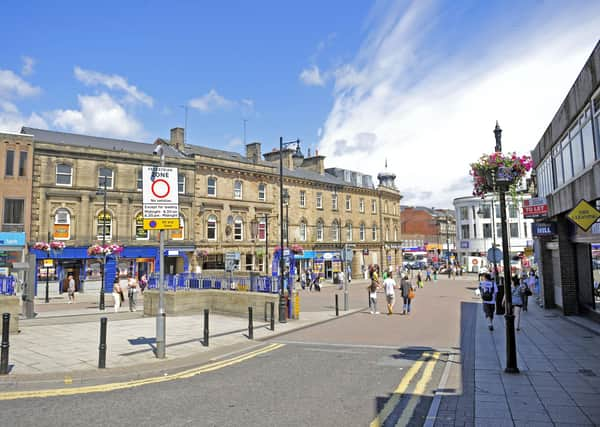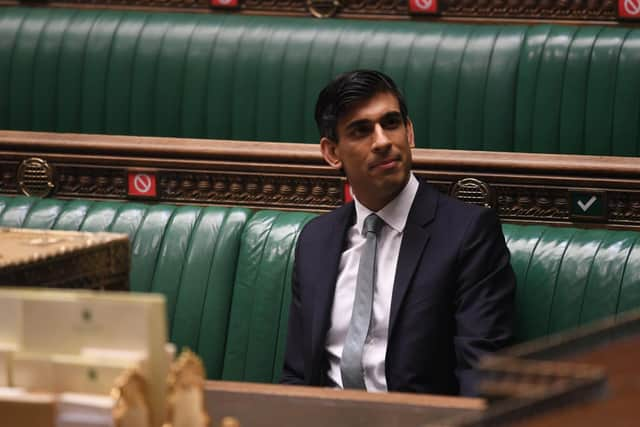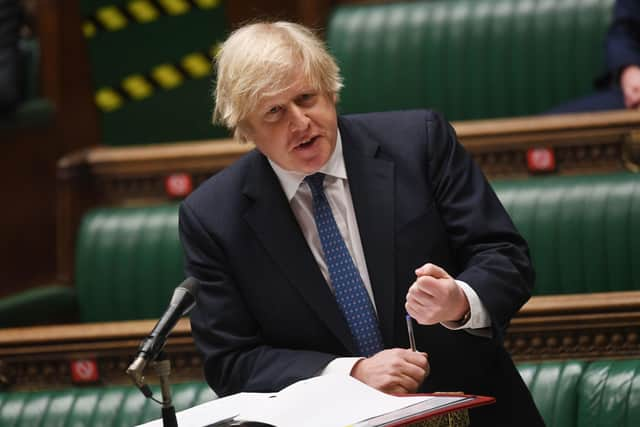Barnsley’s betrayal exposes ‘levelling up’ political partisanship – Gwilym Pryce


But, as the infection rate figures poured in, the picture of the UK united by a common vulnerability to an indiscriminate foe began to change.
This should not surprise us. After all, Britain has one of the highest levels of regional inequality of any developed country. But it is not just inequality between the North and South that should concern us.
Advertisement
Hide AdAdvertisement
Hide AdOur research, as part of the Understanding Inequalities initiative, reveals deep inequalities between cities in the same region, and between neighbourhoods in the same city.


Inevitably, this growing inequality also causes society to fragment, polarise and lose cohesion, making it politically volatile as evidenced by the bitter referendum on Brexit and its legacy in the collapse of Labour’s “red wall” in 2019.
As we emerge from lockdown and mass vaccination, these inequalities and their drivers must be addressed as a national emergency.
Unlike its response to the pandemic, which involved a collective mobilisation of scientific and expert knowledge and a massive investment in the tools needed to defeat the virus, the Government is taking a patchwork and partisan approach to “levelling up” and “building back better”, exposing it to charges of pork barrel politics and empty sloganeering.
Advertisement
Hide AdAdvertisement
Hide AdSheffield City Region Mayor Dan Jarvis was quick to question why the Chancellor’s Richmondshire constituency was placed in the top category for regeneration funding, while Barnsley was marked down to the second tier.


Our own mapping shows that 22 per cent of Barnsley’s neighbourhoods are among the most deprived 10 per cent in the country, whereas Richmondshire has none.
One of the most powerful causes of this geographic inequality has been the combination of cuts to welfare and the impact of austerity on councils – especially in social care and ability to stimulate economic growth.
Contrary to what former Chancellor of the Exchequer George Osborne declared when responding to the impact of the 2008 financial crash, we are not “all in this together”. The man who championed the Northern Powerhouse should know that cuts in the overall benefits bill for working age adults in the North- East were 41 per cent higher than in the South-East.
Advertisement
Hide AdAdvertisement
Hide AdAnd Rishi Sunak risks repeating this mistake by ending the £20 uplift to Universal Credit at the very point when unemployment is set to rise, leaving the poorest households facing a seven per cent fall in income in the second half of the year. Relocating a hundred or so Treasury officials to Darlington is unlikely to reduce the impact of this cut.
Regional and neighbourhood inequalities exist not just in income but also in education, employment, pollution and exposure to crime. But, because government departments focus on particular areas of inequality in isolation, policies can be introduced that reduce inequality in one area only to worsen it in others.
Thus inner city regeneration has led to the “suburbanisation of poverty”, which has worsened access to employment for poor households who now tend to live further away from where the jobs are, which in turn is likely to have particularly detrimental impacts on the children of single mothers who cannot travel far to work owing to childcare commitments.
Clearly, there needs to be a more joined-up approach within government to tackling those various dimensions in an informed way.
Advertisement
Hide AdAdvertisement
Hide AdBoris Johnson, author of a Churchill biography, likes to identify himself with the war-time Prime Minister who, when the conflict neared its end, appointed Sir William Beveridge to eradicate the “five giant evils”.
It is time for the Prime Minister to level with the voters. If he really wants to level up, to eradicate the evils of poverty and inequality, he could do worse than echo Beveridge’s clarion call to Parliament in 1942 when he said: “Now, when the war is abolishing landmarks of every kind, is the opportunity for using experience in a clear field. A revolutionary moment in the world’s history is a time for revolutions, not for patching.”
Resources on the scale needed to eradicate post-war poverty and Covid must now be harnessed to defeat geographical inequality.
Gwilym Pryce is Professor of Urban Economics and Social Statistics at the University of Sheffield.
Advertisement
Hide AdAdvertisement
Hide AdSupport The Yorkshire Post and become a subscriber today. Your subscription will help us to continue to bring quality news to the people of Yorkshire. In return, you’ll see fewer ads on site, get free access to our app and receive exclusive members-only offers. Click here to subscribe.
Comment Guidelines
National World encourages reader discussion on our stories. User feedback, insights and back-and-forth exchanges add a rich layer of context to reporting. Please review our Community Guidelines before commenting.